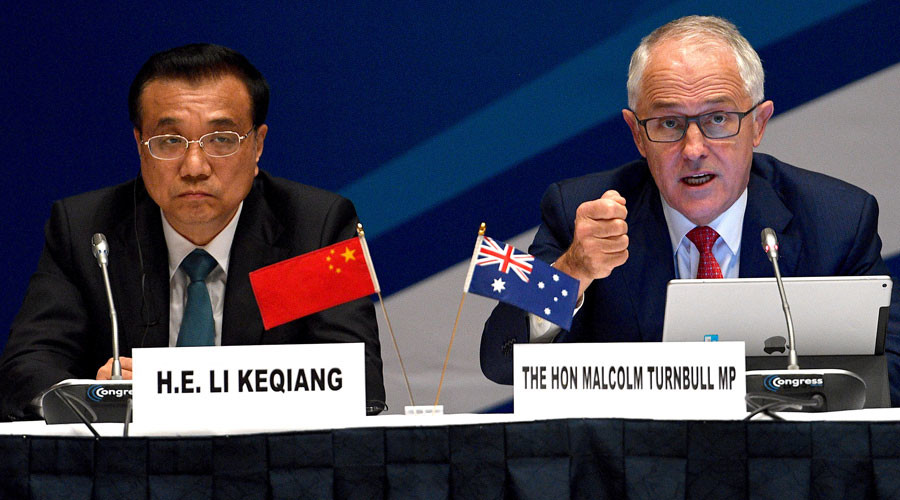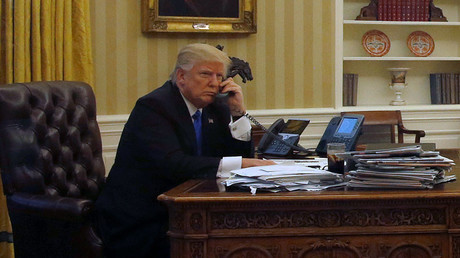Merkel turning toward Moscow?
Besides French presidential candidate Marine Le Pen’s surprise meeting with Vladimir Putin today, another important meeting between German leaders and Russia’s president happened last week, but has gone almost unreported outside German media.
Bavarian governor Horst Seehofer, who holds a powerful position in German politics, visited Moscow on March 16th, bringing with him a massive delegation of German political and business leaders.
Seehofer has gone on record many times as a staunch opponent of the EU’s anti-Russian sanctions, saying they are killing German businesses. He’s also said that, “Without Moscow, may of the world’s crises can’t be solved,” and praised Putin as “noble” for not involving himself in Germany’s domestic affairs.
Spiegel Online gave the following details of the trip:
[Mr. Seehofer] came with a 80 member delegation representing Bavarian society groups, cultural representatives, journalists, industry and agriculture. Those last two branches of the economy have been long demanding at least an easing of sanctions imposed after the annexation of Crimea, and they hope for an end to Russia’s embargo in return.There are more than 5,000 firms active in Russia with German share holders, and more than a quarter come from Bavaria. The volume of trade between Bavaria and Russia last year was €7.62 billion. Four years ago, i.e. before the sanctions, the figure stood at €13.1 billion.“Putin received Seehofer like none other,” declared the headline from German news channel Welt24. Indeed, the governor was treated, and behaved essentially as if he were, a head-of-state.
Bavaria, as the largest and most economically powerful state in Germany, does carry weight in Berlin. Seehofer represents Bavaria’s Christian Social Union (CSU) political party – the longtime ally of Angela Merkel’s CDU which is the mainstream conservative party in the rest of Germany.
Of course, Bavaria is not a sovereign state (not for more than a century, anyway) and Seehofer has no right to conduct an independent foreign policy. Berlin certainly tacitly approved the trip, even though there are differences in the public positions of Seehofer and Merkel on a range of issues from refugee policy to anti-Russian sanctions.
During the meeting, the governor conveyed “especially warm greetings” from the German chancellor to the Russian president, thus fulfilling diplomatic protocol.
“She reminded me several times not to forget that,” he added, chuckling.
Seehofer also revealed something else: that Angela Merkel will herself visit Putin in Moscow on May 2nd.
This is important news, as it will certainly come prior to any future summit between Trump and Putin, which will remain politically impossible for Trump for some time.
Having just left discussions with Donald Trump in Washington, the question is what agenda Angela Merkel will advance when she arrives in Moscow in May. Will she continue representing the neo-con globalist camp and it’s policy of confrontation, or will she pivot to Donald Trump’s position, bringing proposals for rapprochement?
A rapprochement is very much what is desired in Munich. And without the support of Seehofer and Bavaria’s CSU, Merkel cannot prevail in German parliamentary elections scheduled for this September. http://theduran.com/merkel-bavarias-governor-meets-putin-moscow/



